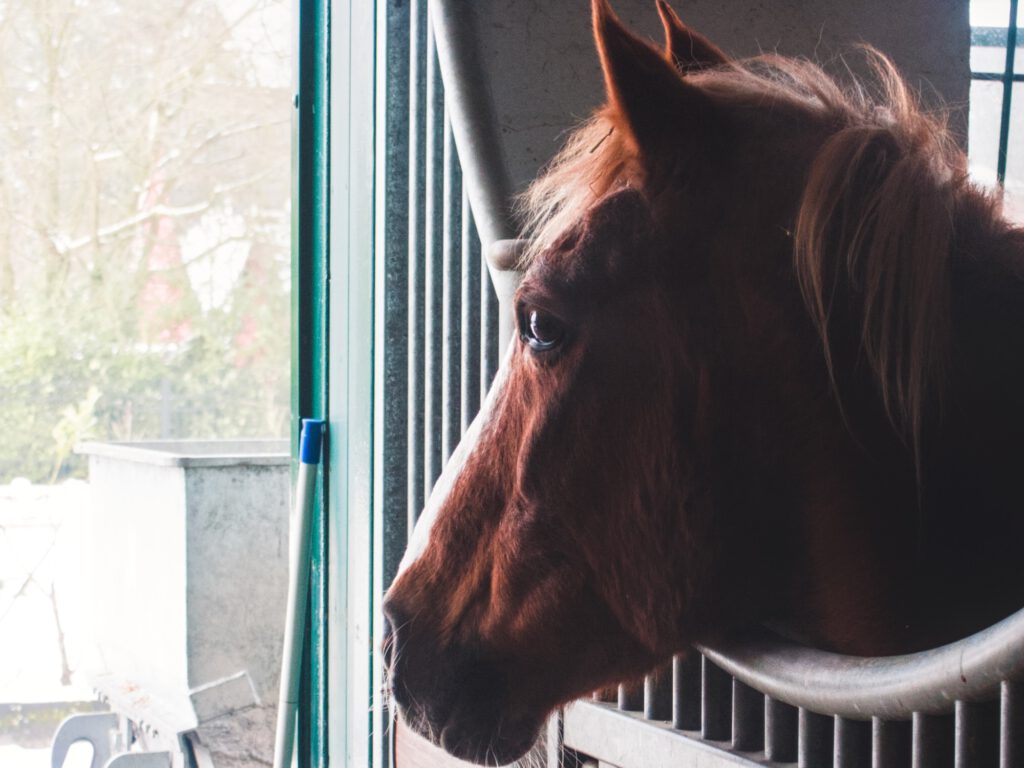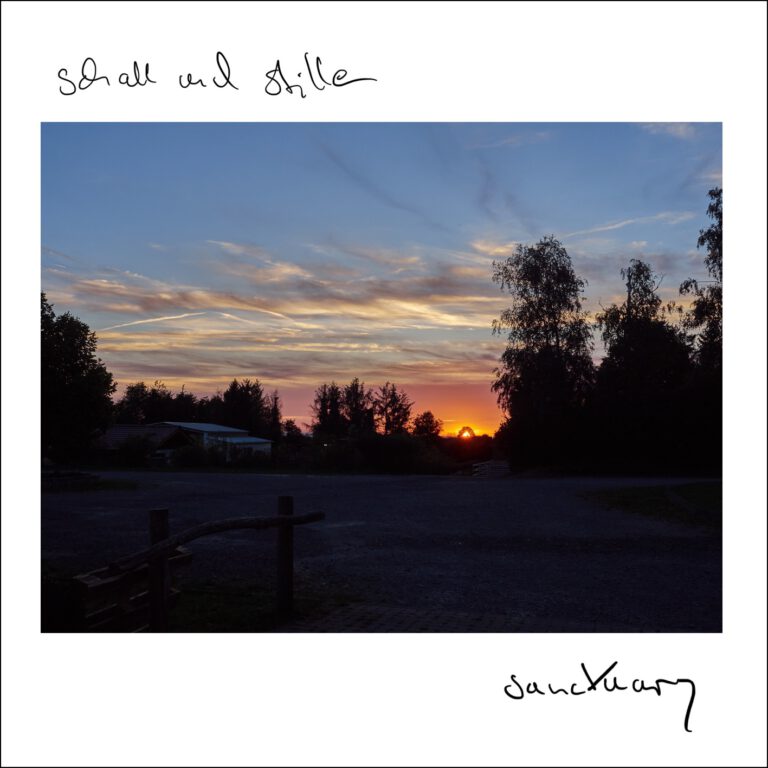Dear Mikey,
first of all, I would like to thank you very much for your empathy regarding the worries and hardships of music loving people.
In the 20VC podcast, you recently announced that “[…] It’s not really enjoyable to make music now”.
And you’re absolutely right. More and more people don’t enjoy making music.
I am one of those people.
Thank you for understanding me.
It’s good when people like you understand the plight of people like me, because as the CEO of Suno – a platform that uses “artificial intelligence” to create new pieces of music at the touch of a button – you are an influential man in an influential position, and you have the power to change things (which are really shitty at the moment) for the better.

The only problem is that from the rest of your comments it quickly becomes very clear that you might have identified a problem, but not the causes.
You continue to claim that people don’t enjoy making music because “[…] it takes a lot of time, it takes a lot of practice, you need to get really good at an instrument or really good at a piece of production software.”
(and of course your platform comes in handy because all people have to do is enter a prompt and press a button and they have a beautiful, finished song)
And that’s the point at which I regretfully must inform you that you haven’t got any clue whatsoever. But in order to enlighten you, I have to go a little deeper and talk a bit from the artist’s perspective.
Let’s take my current album, “Malers Hüs” as an example – because it’s a very good example indeed.
I recorded “Malers Hüs” last year, and you’re absolutely right: it took a hell of a lot of practice and time to be able to do it.
48 years, to be precise.
I learned to play the piano all by myself at the age of 4 because my grandparents had a piano at home. When I was 5, I could play songs from the radio two-handed by ear, and not only that, I also played my own pieces. Not because I wanted to perform any tricks that my parents could then proudly show off (which they never did, on the contrary, I was never encouraged to make music), but simply because it was a deep, inner need for me. I had to make music, I wanted to, even at the age of four.
Of course, I couldn’t play as well back then as I can today. That only came with time and a lot of practice. In my case, with even more time and even more practice than many other musicians, because as I said before, my parents didn’t see any point in encouraging me in any way, so I never had any schooling so instead I had to teach myself and often took wrong turns on this journey or got into the habit of doing things that would have worked much better in other ways.
So it took many, many years of practicing and gaining experience before I was able to write a ballad like “Fish Out Of Water”. And it took even more listening and absorbing the world around me before I was able to come up with runs and harmonies like on “Candor”.
But I have to disappoint you. It’s not as if I didn’t enjoy it. On the contrary. It was a wonderful journey and I would not miss it for the world. Even if it may sound megalomaniacal and unimaginable to people like you, the music that I compose, play and record is the result of a process that can only happen once – and it is something that no one else in this world could do. And even though I am now again at a point in my life where precious few people care about my music and I don’t make any cash from it, it is unique to me and could never ever be done by any another person on this big wide world.
It took me 48 years to be able to compose the music on “Malers Hüs”, and I enjoyed every second of it.

As for the production – yes, you’re right, that also takes an awful lot of time and requires a lot of know-how.
And again, it was a long process before I had learned all that which ultimately led to me being able to record “Malers Hüs” the way it was recorded. From handling tape machines and multitrack recorders in the 90s of the last century to working with DAWs today, I’ve accumulated a lot of experience.
But it’s not just that. It’s also the human interaction. I had to learn so much. How to function or not function in a band. How to harmonize or not harmonize with other people in the truest sense of the word. Which sensitivities affect a production and how. That a musical partnership can be just as close, just as emotional, just as ecstatic – and just as painful – as a social one. How friendships are formed and what causes them to break up. What stands between people and what harmonies and dissonances alike connect them.
Damn it Mikey, I had to go through all that, both to be able to write lyrics like those of “Fish Out Of Water” and to be able to record the song in a way that makes it sound right…!
And even more: “Malers Hüs” features three other musicians – Andrea, Suse and Milo. They are three wonderful human beings and very capable musicians, and they all only sound the way they do on this album because they have their own, very individual journeys behind them, each of which would certainly be worth an article of the same length, and whom I was only able to record and integrate in the way I did because I have learned my very own way of approaching people in 30 years of music production.
What an insane amount of time, resources and human empathy!!!
Would I like to cut any of this short? Hell no, definitely not. I wanted it this way, I had it this way, and for the most part it was very, very nice. Yes, it was very, very painful a few times, I admit that, but there can be no ups without downs.
What, you are probably asking, is my problem then?
Let me tell you what my problem is.
My problem became quite apparent last year, when four of my ex-colleagues were standing around a notebook in the office, completely enthralled, saying things like “Wow!”, “You have to listen to this!”, “Unbelievable!”, “Wow, how cool is that!”
What fascinated them so much was a little shitty song that they had themselves generated by your AI platform Suno. Pretty slick, generic pop with a Latin twist, because that’s what they’d specified at the prompt, with a pretty generic, pseudo-bitey lyric about meetings being a waste of time or some shit like that.
Here’s the thing: Those very same colleagues never gave a flying fuck that I was a musician and had been making music for 48 years. I had let it slip from time to time, but they just didn’t notice (or didn’t want to notice).
The same colleagues of course also didn’t give a flying fuck a few months later when “Malers Hüs” was released. I mentioned it, several times in fact, but I didn’t ever get so much as a “thumbs up” emoji in Google Meet.

Well, I’m not mad at them because it’s not their fault that they live in a world where people realize less and less that “music” is culture made by normal human beings.
As I said, I’ve been making music for quite a while now. I’m quite used to the fact that big success isn’t lurking around every corner and that people tend to be disinterested and dismissive (until, that is, when you actually happen to have some success, which is when they begin to act as if they’ve always supported you… but that’s another story).
But lately I’ve been experiencing a certain phenomenon that’s new to me: when I mention that I make music, I’m either met with polite ignorance or I’m being looked at as if I’ve just told people that I like to eat cubist wooden figures in my spare time and that I’m also an ardent proponent of free love between fish and ethereal subpoena tourism.
In today’s world, “music” is something that comes out of the computer and is available at all times. From Spotify or Apple or other scammers who make a fortune out of it.
Music is highly available, cheap and dehumanized.
People don’t sing together anymore, they don’t play each other new songs. Music is plink-plonk that comes from the Spotify playlist. And because Spotify can earn a lot more money if nobody has rights to the plink-plonk delivered, they are force-feeding their users AI-generated plink-plonk which has been manufactured for this purpose only.
And that’s the problem, Mikey.
Your great platform doesn’t make it easier for people to create music.
It makes it easier for people to cheat, delude and con listeners out of a beautiful and deeply human experience.
Don’t get me wrong, Mikey. I’m not mad at you. I believe that you genuinely believe what you’re saying. But that’s because you’re not a musician, you don’t understand musicians and you don’t understand music. You’re just another clueless capitalist tech bro. The bitter truth is: Your platform makes it easier for people to ruin music.
What Suno is doing is simply the next, perhaps final step in the dehumanization of music.
Let me fill you in on a little secret here, Mikey. Just between you and me: although it’s my best album to date, “Malers Hüs” has sold really badly. So badly that I recently had to seriously think about whether I wanted to continue distributing music in this form – and the answer was a resounding “no”.
I’ve basically been working on the next album for several years now, and it’s as good as finished. It was going to be an enchanting concept album about the souls of animals and humans meeting at a sanctuary. With a lot of guest musicians and beautiful music. Instrumentals and songs alternating and painting a picture of a world that is becoming more and more unhinged, but in which there is still an incredible amount of love and beauty.

Sounds good, doesn’t it? There’s even a design for the cover already, because I had every intention of releasing this album in 2025.
It will stay on my shelf though, because as declining as my sales are, only one thing would be certain with this album: that your or some other AI scammer’s software will mine it and use it as training data to create even more plink-plonk for deplorable, sad beings who have no idea how much they are being cheated.
So there you have it. Making music is wonderful, enjoyable and unique. What’s not enjoyable anymore is releasing it to the public – thanks to the world you (and people like you) are creating. If you have any decency, stop it now.
But then again we both know, you won’t do that.
You’d have to understand music.

#music #musicproduction #phtotography #fotografie #ccmusic #freemusic #art #culture #creativity
Disclaimer: All images and music used in this article are handmade. None of the music used in this article nor the pictures were made using the help of any machine learning (“AI”) technology.


Leave a Reply